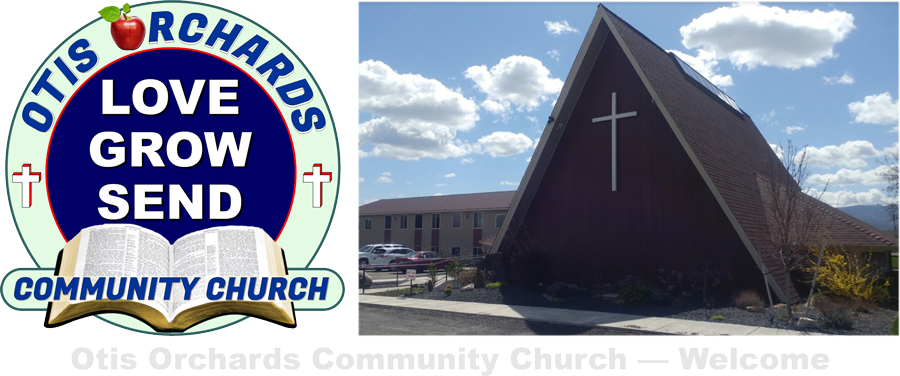
 |
|||||||
| RESOURCES — SHORT ARTICLES | |||||||
|
|
|||||||
 |
 |
 |
 |
 |
 |
| SHORT ARTICLES BY TOM ELSEROAD | |||||
| 2020-10-12 | What Is The Sin NOT Leading To Death (1Jn.5:16-17) | ||||
|
1Jn 5:16 If anyone sees his brother sinning a
sin which does not lead to death, he will ask, and He will give him life
for those who commit sin not leading to death. There is sin leading to
death. I do not say that he should pray about that. 1Jn 5:17 All unrighteousness is sin, and there is sin not leading to death. What is the difference between a sin that leads to death, and one that does not. Can we as Christians commit an unforgivable sin? We need to look at both the larger context of the New Testament, and well as 1 John specifically. 1 John 1:9 gives us some help in answering this question. This is the same book so it helps us to understand what John means concerning sin. 1Jn 1:9 If we confess our sins, He is faithful and just to forgive us our sins and to cleanse us from all unrighteousness. He say, “If we confess our sins” without indicating what sin or kind of sin. If you confess your sins you will be forgiven and cleansed. What a precious promise. When you confess it has the idea of agreeing with God that it is sin and that it stinks. Heb 12:16 lest there be any fornicator or profane person like Esau, who for one morsel of food sold his birthright. Heb 12:17 For you know that afterward, when he wanted to inherit the blessing, he was rejected, for he found no place for repentance, though he sought it diligently with tears. This refers to Esau in the Old Testament and what happened to him. Esau was sexually unholy. He sold his birthright for a single meal. Later, when he desired to inherit the blessing he was rejected. His problem was that he “found no place for repentance”. What he sought was repentance, but there was none in his heart. Esau was no longer capable of repenting. It is not that he repented and cried over his repentance. No, he could not repent. He had sinned to a degree that he thought God had given him up. This appears to be what Jesus meant when He spoke of an unforgivable sin (Mt.12:30-32). Notice it is not a particular sin. Rather it is a degree, depth, or persistence of sin to the point where repentance have become impossible. So back to the question. What is the sin NOT leading to death? It is any sin that we are still by grace capable of confessing and repenting from. That sin does not lead to death. Back to the context of 1 John 5:16-17. “If anyone sees his brother sinning a sin” is better without the word “a” because it makes it sound like a specific sin is in mind. There is no indefinite article in Greek. The word “a” was added by the translators for clarity. But in this case, it does not help. The context tells us whether “a” should be added or not. Because there is no specific sin talked about, it would be better to just say “sin” by itself. Thus verse 16 is saying, “if anyone sees his brother committing sin not leading to death, he shall ask….” This broadens the meaning to include any sin we commit. For any sin not leading to death we can and should pray for. John continues by saying, “There is sin leading to death. I do not say that he should pray about that”. We need to make sure that we see 1 John 5:16-17 as part of the greater context of 1 John. In 1 John there is a strong emphasis that those who are truly born again do not sin (1Jn.3:9). 1Jn 3:9 Whoever has been born of God does not sin, for His seed remains in him; and he cannot sin, because he has been born of God. Yet John warns about misunderstanding this truth to think Christians do not sin anymore (1Jn.1:8, 10). 1Jn 1:8 If we say that we have no sin, we deceive ourselves, and the truth is not in us. 1Jn 1:10 If we say that we have not sinned, we make Him a liar, and His word is not in us. So there is this tension taught in 1 John. On one side you do not keep on sinning if you are a believer. On the other side you do not ever stop sinning even as a believer. John wants us to understand the necessity of the new birth which gives us significant victory over sin. Yet as believers we do in fact sin. And we can confess these. John is saying in verse 16, yes there is such a thing as a believer sinning and not being damned for it. Then in verse 17 John says “All unrighteousness is sin, and there is sin not leading to death” Christians are not perfect (meaning they do not sin), and not all sin leads to death (eternal damnation). Notice John includes a disclaimer in verse 16 when he says, “I do not say that he should pray about that”. John recognizes what Jesus said about the unforgivable sin and of Esau who could not repent. John says, “There is sin leading to death [eternal damnation]”. John is saying, I am not talking about that here. John is saying I am not talking about those unrepentant examples when I say to pray about those who have sinned. The sin that does NOT lead to death (eternal death or damnation) is any sin that we commit that we are by grace capable of truly confessing and repenting from. If your worries about “unforgivable sin” relate to a pattern of sin and unrepentance in your life, your very concerns may be God’s Spirit working to keep you from continuing to harden your heart beyond his softening. Don’t despair. And don’t treat it lightly. It’s not too late, if you still have it in you to repent (1Jn.1:9). Pastor Tom Elseroad |
|||||
| An Independent and Evangelical Church |
 |
23304 E Wellesley
Ave. Otis Orchards, WA 99027 Church Office: 509.926.9552 tomelseroad@gmail.com |